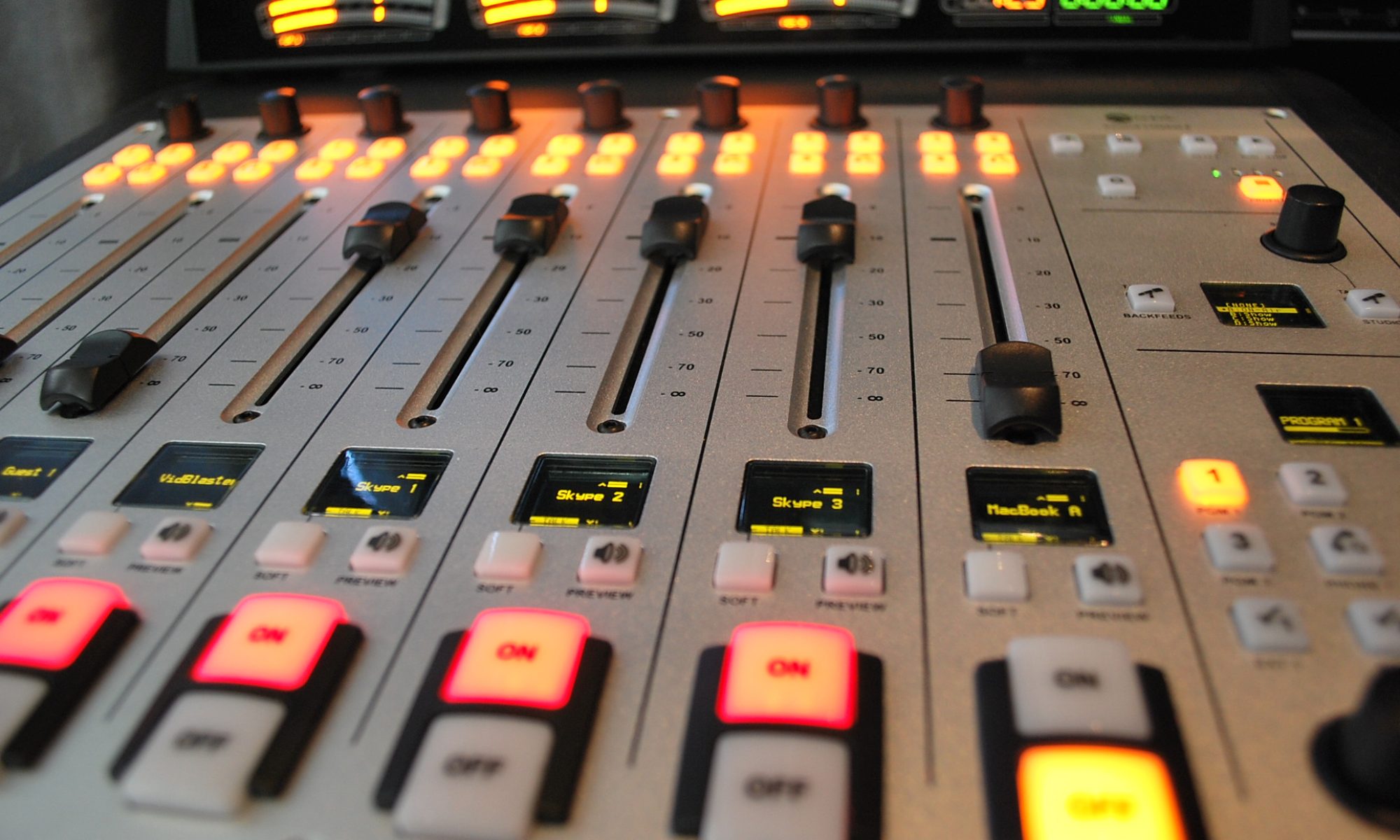Dance music is all the rage these days. Switch on your radio, or wander down your local high street, and it’s everywhere.
Any European holiday resort or British town worth it’s salt is full of bars and clubs playing the latest dance sounds, and the hero of anyone aged between thirteen and thirty is no longer a top musician or group, but more than likely a DJ.
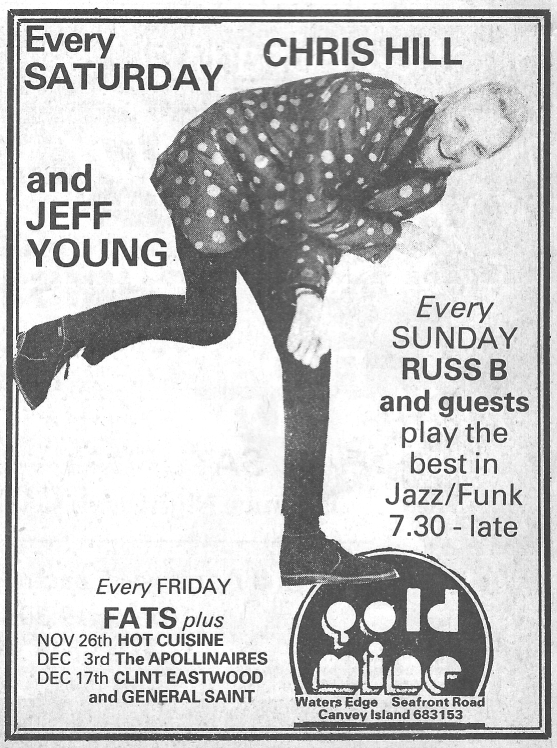
There was a rather dreary time not so long ago when the most popular music around was literally that – ie. records which featured in the Top 40 pop charts.
Not everyone liked this stuff.
We lived in a place and time where people were able to develop their musical tastes and fashion styles on a continual basis – from being mods, rockers, hippies, skinheads, suedeheads, greasers, headbangers, reggae fans, teddy boys, rockabillies, punks, punk-a-billes, psycho-billies, or maybe new romantics, futurists, and whatever else evolved two months later.
For casual fans of black dance music, there were radio stations and discos playing the more commercial material which reached the charts. You’d even see these acts on BBC TV’s Top of The Pops on Thursday nights, but the stuff that appealed to the more dedicated fans was mainly recorded by more obscure artistes from the US – soul, funk and jazz, and various sub-genres – or from Jamaica, if you liked your reggae (which I’ll maybe cover in a future chapter). One very rarely got to hear this type of music, as it was regarded as a ‘minority’ taste, even though it sold in bundles via specialist record shops. There were a few British and European acts doing the rounds, but most of the really decent stuff came from across the Atlantic, and as such it rarely gained more exposure than the media were required to give it.
For people living in cities in the UK this type of music was confined to miniscule segments of specialist radio programming each week . In London we were rationed to a few hours each weekend – BBC Radio London’s Robbie Vincent show on Saturday lunchtimes, and Capital Radio’s ‘Soul Spectrum’ show hosted by Greg Edwards on Saturday evenings. Greg also hosted a Sunday evening show playing slower ‘smoochier’ stuff, and there was also Dave Brown’s Friday night show on BBC Radio Medway/BBC Radio Kent, which had a signal that used to easily reach across into Essex and even Hertfordshire.
The national popular music station in Britain (BBC Radio One) played barely any black music, other than the odd soul (or reggae) tune that might have made it into the charts. There was a Musicians Union ruling that only nine hours ‘needleplay’ was allowed per day, which meant that huge swathes of radio programming didn’t feature the playing of recorded music (it stopped at 7pm most nights). Black music hardly got a look in.
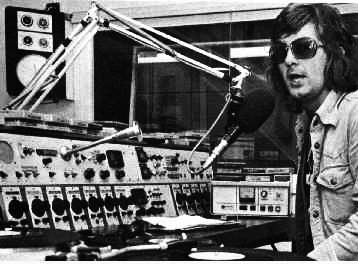
An interesting point to note is that Radio One wasn’t even broadcasting on FM until way into the 1980’s. Their entire nationwide output was restricted to medium wave (we eventually started referring to it as AM) so even if you were lucky enough to hear the odd tune that made it on to the playlist, it usually sounded pretty dire. For those who were truly desperate, there was always the odd show on Radio Luxembourg, but what with an awful AM signal and seriously over-commercialised shows, watching early evening telly (or just going to the pub) tended to be a more favourable choice.
Sometime around 1982 the BBC finally did ‘roll over’ and concede to a soul programme – Froggy and Pete Tong presenting ‘Stepping Out’ – less than one hour, once a week, a ‘specialist feature’ segment of Peter Powell’s Friday drivetime show, although even this was soon quietly moved to a Monday afternoon slot.
It would be fair to say that unless you lived in an inner city area, or somewhere with a sizeable black population, such as London, Birmingham, Manchester, or Bristol, you would be pretty unlikely to bump into anyone else who was seriously into their soul music.
Soul music did thrive in some pretty unexpected locations – specialist clubs in places like Didcot (Oxfordshire), Canvey Island (Essex), Yate (near Bristol), Wigan (Lancashire) and St Ives (Cambridgeshire).
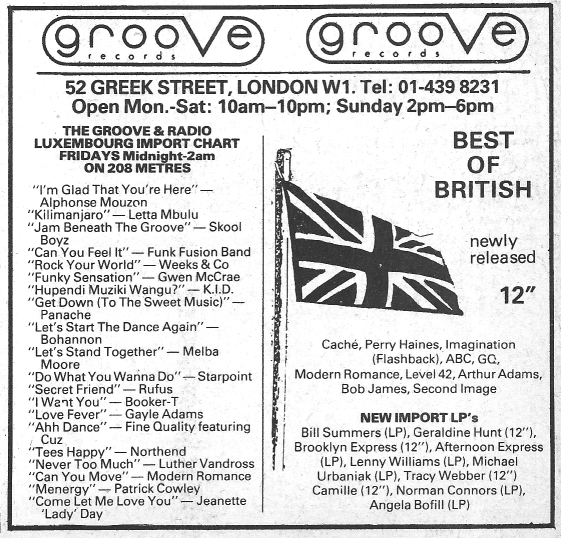
These venues were the preserve of the truly dedicated Soul fanatic. One would hear tales of car loads of people trekking to places 50+ miles away, purely to visit a particular club or to see a DJ in action.
Of course, everyone could name the commercial disco tunes of the day, by bands like Chic or Shalamar, but unless one travelled to a specialist venue that played records on US import or ‘white label’, you were pretty much isolated with your tastes. Specialist clubs were usually a car drive away, and many had strict door policies (‘no jeans or trainers’ etc). Early closing times (usually 2am) were normal back then, so a sizeable budget and a fair amount of effort was usually required in order to have a half-decent soulful night out.
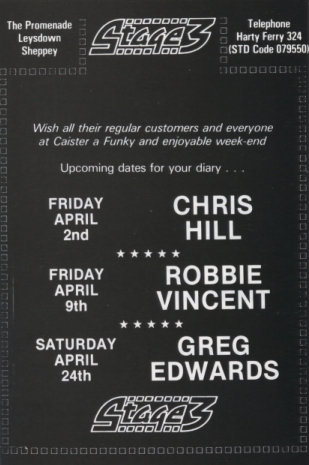
So how did one survive this horrendous ordeal ? One of my greatest pleasures in these days was at least being able to read about my favourite music. The two essential music publications were Black Echoes (soul, reggae) once a week in newspaper format, and Blues & Soul (soul, jazz) fortnightly in magazine format.
These were a prime source of information regarding activities on the Soul scene. Echoes carried a good amount of Northern Soul content, and plenty of adverts for clubs and venues, while B&S was great for record reviews and more current sounds.
Radio could provide very little aural satisfaction, but there was always the small matter of those few hours each Sunday afternoon on the London FM band, courtesy of Radio Invicta. There were plenty of pirate stations operating, but before the 1980’s Invicta was the only one which had an entire format of soul and funk music .

The contribution made by clandestine radio operators was invaluable, and was a unique source of music that was literally unheard elsewhere. Pirate radio is an extensive subject, with it’s roots in the mid-1960’s, and is comprehensively covered in it’s own section elsewhere here.
